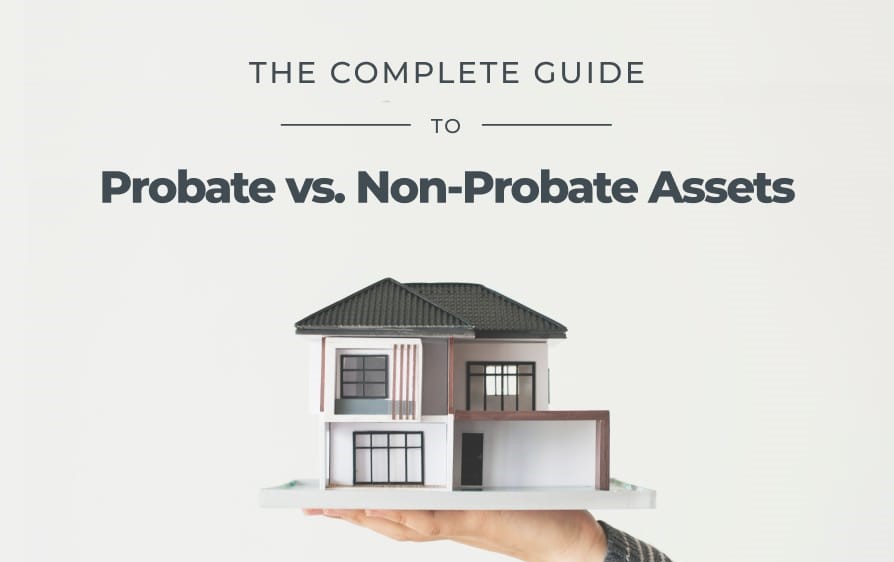What Are Probate Assets?
Probate assets are those that must go through the probate process upon an individual's death. These assets typically include property solely owned by the deceased, bank accounts, and personal belongings that do not have designated beneficiaries. Understanding what constitutes probate assets is crucial for effective estate planning and ensuring a smooth transition of assets.
For example, if a person passes away leaving behind a house that is solely in their name, this property will be classified as a probate asset. In contrast, assets such as life insurance policies or retirement accounts with named beneficiaries will bypass probate, illustrating the importance of proper estate planning to minimize probate assets.
Understanding Non-Probate Assets
Non-probate assets are those that do not require court intervention to transfer ownership after death. These assets can be transferred directly to beneficiaries or co-owners, making them a preferred choice for many individuals looking to streamline their estate processes. Familiarizing yourself with these assets can significantly impact your estate planning strategy.
Common examples of non-probate assets include joint bank accounts, assets held in a living trust, and properties with transfer-on-death designations. By utilizing non-probate assets, individuals can avoid the lengthy probate process, thereby expediting the distribution of their estate to their heirs.
The Probate Process in Texas
The probate process in Texas involves several steps that must be followed to ensure the lawful distribution of a deceased person's estate. This process can vary in complexity depending on whether the deceased left a will or died intestate (without a will). Knowing the steps involved can help individuals navigate this often challenging legal landscape.
The process typically begins with filing the will (if one exists) and an application for probate with the local court. Following this, the court will validate the will, appoint an executor, and oversee the administration of the estate, which includes settling debts and distributing assets according to the will or Texas intestacy laws.
Common Challenges in Probate Proceedings
Probate proceedings can present various challenges that may complicate the distribution of an estate. These challenges can range from disputes among heirs to issues related to the validity of the will. Understanding these potential hurdles can prepare individuals for what to expect during the probate process.
For instance, if a family member contests the will, this can lead to prolonged litigation and additional costs. Moreover, the executor may face difficulties in locating assets or managing debts, which can further delay the probate process. Being aware of these challenges can help families plan more effectively and seek legal guidance when necessary.
What Are Probate Assets?
Probate assets are those that must go through the probate process upon an individual's death. These assets typically include property solely owned by the deceased, bank accounts, and personal belongings that do not have designated beneficiaries. Understanding what constitutes probate assets is crucial for effective estate planning and ensuring a smooth transition of assets.
For example, if a person passes away leaving behind a house that is solely in their name, this property will be classified as a probate asset. In contrast, assets such as life insurance policies or retirement accounts with named beneficiaries will bypass probate, illustrating the importance of proper estate planning to minimize probate assets.
Understanding Non-Probate Assets
Non-probate assets are those that do not require court intervention to transfer ownership after death. These assets can be transferred directly to beneficiaries or co-owners, making them a preferred choice for many individuals looking to streamline their estate processes. Familiarizing yourself with these assets can significantly impact your estate planning strategy.
Common examples of non-probate assets include joint bank accounts, assets held in a living trust, and properties with transfer-on-death designations. By utilizing non-probate assets, individuals can avoid the lengthy probate process, thereby expediting the distribution of their estate to their heirs.
The Probate Process in Texas
The probate process in Texas involves several steps that must be followed to ensure the lawful distribution of a deceased person's estate. This process can vary in complexity depending on whether the deceased left a will or died intestate (without a will). Knowing the steps involved can help individuals navigate this often challenging legal landscape.
The process typically begins with filing the will (if one exists) and an application for probate with the local court. Following this, the court will validate the will, appoint an executor, and oversee the administration of the estate, which includes settling debts and distributing assets according to the will or Texas intestacy laws.
Common Challenges in Probate Proceedings
Probate proceedings can present various challenges that may complicate the distribution of an estate. These challenges can range from disputes among heirs to issues related to the validity of the will. Understanding these potential hurdles can prepare individuals for what to expect during the probate process.
For instance, if a family member contests the will, this can lead to prolonged litigation and additional costs. Moreover, the executor may face difficulties in locating assets or managing debts, which can further delay the probate process. Being aware of these challenges can help families plan more effectively and seek legal guidance when necessary.

